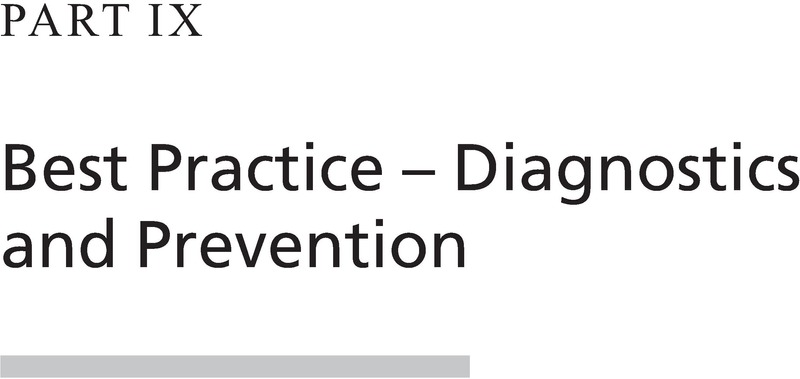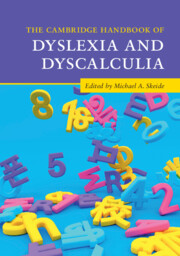Book contents
- The Cambridge Handbook of Dyslexia and Dyscalculia
- The Cambridge Handbook of Dyslexia and Dyscalculia
- Copyright page
- Contents
- Figures and Tables
- Contributors
- Acknowledgements
- General Introduction
- Part I Theoretical Frameworks and Computational Models
- Part II Cognitive Profiles and Behavioural Manifestations
- Part III Genetic and Environmental Influences
- Part IV Neurodevelopmental Foundations
- Part V Gender, Ethnicity, and Socioeconomic Background
- Part VI Cultural Unity and Diversity
- Part VII Early Prediction
- Part VIII Intervention and Compensation
- Part IX Best Practice – Diagnostics and Prevention
- Part X Best Practice – Schooling and Educational Policy
- General Summary
- References
- Index
- References
Part IX - Best Practice – Diagnostics and Prevention
Published online by Cambridge University Press: 28 July 2022
- The Cambridge Handbook of Dyslexia and Dyscalculia
- The Cambridge Handbook of Dyslexia and Dyscalculia
- Copyright page
- Contents
- Figures and Tables
- Contributors
- Acknowledgements
- General Introduction
- Part I Theoretical Frameworks and Computational Models
- Part II Cognitive Profiles and Behavioural Manifestations
- Part III Genetic and Environmental Influences
- Part IV Neurodevelopmental Foundations
- Part V Gender, Ethnicity, and Socioeconomic Background
- Part VI Cultural Unity and Diversity
- Part VII Early Prediction
- Part VIII Intervention and Compensation
- Part IX Best Practice – Diagnostics and Prevention
- Part X Best Practice – Schooling and Educational Policy
- General Summary
- References
- Index
- References
Summary

- Type
- Chapter
- Information
- The Cambridge Handbook of Dyslexia and Dyscalculia , pp. 381 - 424Publisher: Cambridge University PressPrint publication year: 2022

